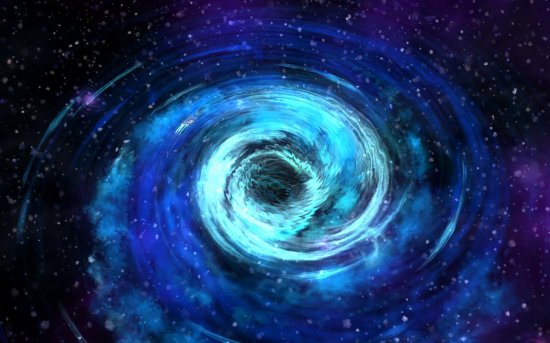The core of the exploding star will bear the full brunt of the catastrophe.
恒星的內核將承受爆炸的全部能量。
When that happens, it will leave behind one outer space phenomenon that has long captured the imagination of stargazers...A black hole.
那時候它會在太空中留下一個特別的現象,一個長久以來引起天文學家無盡想象的現象:黑洞。
The mysterious black hole phenomenon is the product of the violent and powerful explosion of a supernova.
神秘的黑洞現象來自于劇烈的、巨量的“超新星”爆炸,
At least in theory.
至少在理論中是這樣。
Before Hubble, there was no conclusive proof that black holes existed at all.
在有哈勃望遠鏡之前,沒有確實的證據能證明黑洞真的存在。
The modern concept of a black hole comes from Einstein's theory of general relativity.
現在黑洞的理論來自于愛因斯坦的廣義相對論。
If you take matter and you make it massive enough, dense enough, the gravity will be so strong, that you will create a region of space that light can't get out of.
如果你獲取了物質,然后使其擁有足夠的質量和密度,那么它的重力就會大到創造一個連光都不能逃離出去的區域。

It truly does make a hole in space.
它真的是在太空中制造出了一個洞。
You can get into it, you can't get out of it.
你不能進去,進去了就不可能出來。
Sort of like a cosmic lobster trap.
有點像是個太空中的捕蝦器。
According to Einstein, a black hole begins with a very large star.
根據愛因斯坦的理論,黑洞是由非常巨大的恒星演化而來。
It must be at least four times bigger than our sun.
這顆恒星要至少比太陽大4倍。
A black hole is a simple thing.
黑洞是很簡單的理論。
It is a hunk of matter which somehow has gotten so small that the gravitational field right around it is so strong that light cannot escape from it.
一個巨型物質縮變得其極小,圍繞它的重力場力度強到連光都無法逃脫其重力。
So even if it tried to emit radiation, the photons would fall back.
就算這個物質試圖散發輻射,光子也會被重力拉回來。
They would be sucked back by the gravity of the black hole, and it would look invisible.
它們會被黑洞的重力吸引回去,于是你就無法看到這個超重力物質。











